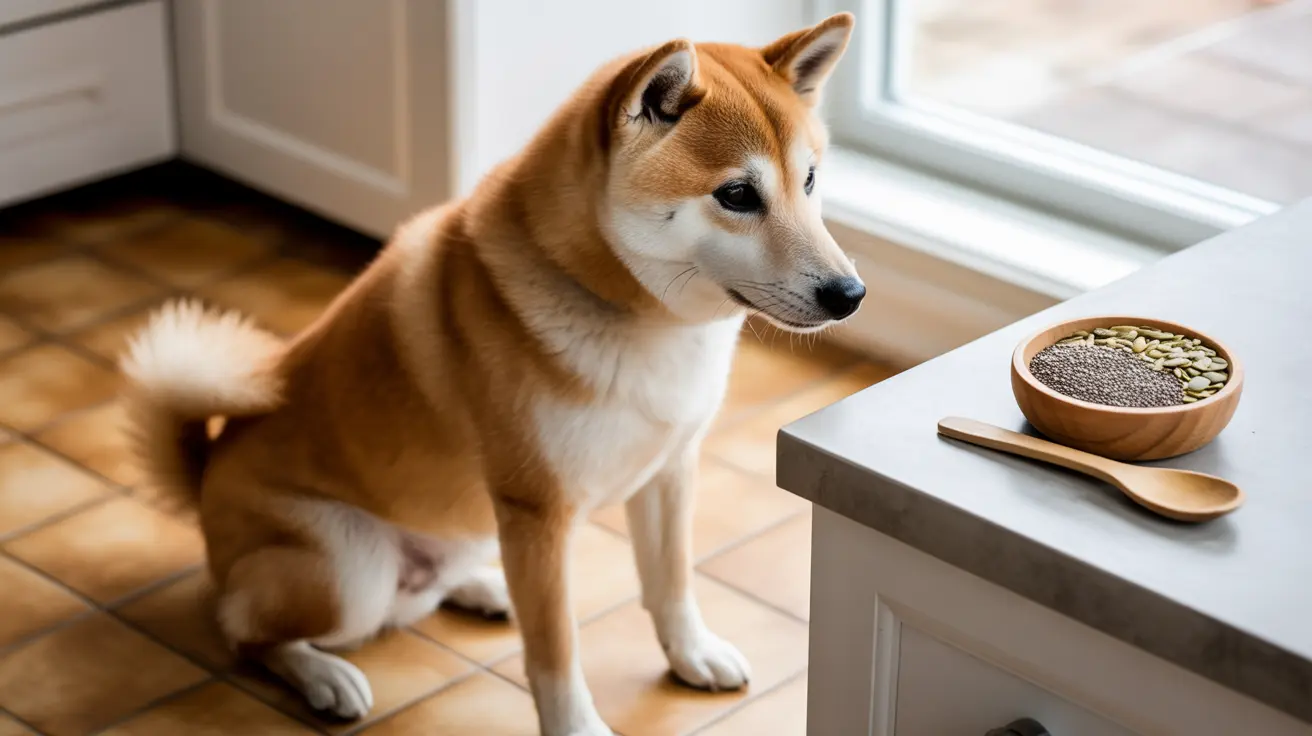Adding seeds to your dog's diet can significantly boost their nutrition, providing essential fatty acids, vitamins, minerals, and fiber. However, not all seeds are created equal when it comes to canine health. This comprehensive guide will help you understand which seeds are beneficial for your furry friend and how to incorporate them safely into their diet.
From improving coat health to supporting digestion and immune function, seeds offer numerous health benefits when properly prepared and portioned. Let's explore the most nutritious options and learn how to maximize their benefits for your dog.
Top Beneficial Seeds for Dogs
Chia Seeds: The Nutrient Powerhouse
Chia seeds pack an impressive nutritional punch, containing more omega-3 fatty acids per gram than salmon. They're rich in calcium, magnesium, and antioxidants, supporting everything from bone health to immune function. When properly prepared, chia seeds can help maintain proper hydration and regulate blood sugar levels.
Flaxseed: The Digestive Helper
Ground flaxseed is an excellent source of fiber and omega-3 fatty acids, particularly beneficial for dogs with digestive issues or inflammatory conditions. Always serve flaxseed ground, as whole seeds pass through undigested, and store in the refrigerator to prevent rancidity.
Pumpkin Seeds: Natural Wellness Support
Rich in zinc and antioxidants, pumpkin seeds are particularly valuable for immune system support. They contain natural compounds that may help eliminate intestinal parasites, making them a gentle, natural deworming option when used as part of a comprehensive health plan.
Proper Preparation and Serving Guidelines
Grinding and Storage
Most seeds should be ground before serving to ensure proper nutrient absorption. Store ground seeds in an airtight container in the refrigerator for up to one week, or freeze for longer storage periods.
Portion Control
As a general rule, small dogs (under 20 lbs) should receive no more than 1/4 teaspoon of seeds per day, while larger dogs can handle up to 1 tablespoon, depending on their size. Always introduce new seeds gradually to prevent digestive upset.
Safety Considerations and Precautions
While many seeds are beneficial, some can be harmful to dogs. Avoid apple seeds, cherry pits, and poppy seeds, as these contain toxic compounds. Additionally, always choose raw, unsalted seeds, and remove any shells before serving.
Dogs with specific health conditions, such as liver disease or kidney problems, may need to avoid certain seeds. Consult with your veterinarian before adding seeds to your dog's diet, especially if they have existing health issues.
Frequently Asked Questions
What are the best seeds to add to my dog's diet for improving skin and coat health?
Chia seeds and flaxseeds are particularly effective for improving skin and coat health due to their high omega-3 fatty acid content. Hemp hearts and sunflower seeds also provide vitamin E and other nutrients that support healthy skin and fur.
How should I prepare seeds like chia, flax, and pumpkin seeds to maximize their nutritional benefits for dogs?
Grind seeds (except hemp hearts) before serving to improve digestibility. For chia seeds, you can also soak them in water to create a gel. Store ground seeds in the refrigerator and use within a week.
Are there any seeds that are unsafe or toxic for dogs, and which ones should be avoided?
Yes, avoid apple seeds, cherry pits, and poppy seeds as they contain toxic compounds. Also, avoid any seeds with added salt, seasonings, or artificial preservatives.
Can feeding seeds to dogs help with digestion, joint health, and immune support?
Yes, seeds can support multiple aspects of canine health. Flaxseeds aid digestion through their fiber content, while pumpkin seeds boost immune function. The omega-3 fatty acids in various seeds help reduce inflammation and support joint health.
How much and how often can I safely feed seeds like hemp hearts, sunflower seeds, or sesame seeds to my dog?
Small dogs should receive no more than 1/4 teaspoon daily, medium dogs up to 1/2 teaspoon, and large dogs up to 1 tablespoon. Start with smaller amounts and gradually increase to the recommended portion. Feed seeds as part of their regular meals, not as standalone treats.
Conclusion
Seeds can be a valuable addition to your dog's diet when properly selected, prepared, and portioned. By following these guidelines and consulting with your veterinarian, you can safely enhance your dog's nutrition with these nutrient-rich supplements. Remember to introduce seeds gradually and monitor your pet for any adverse reactions.






